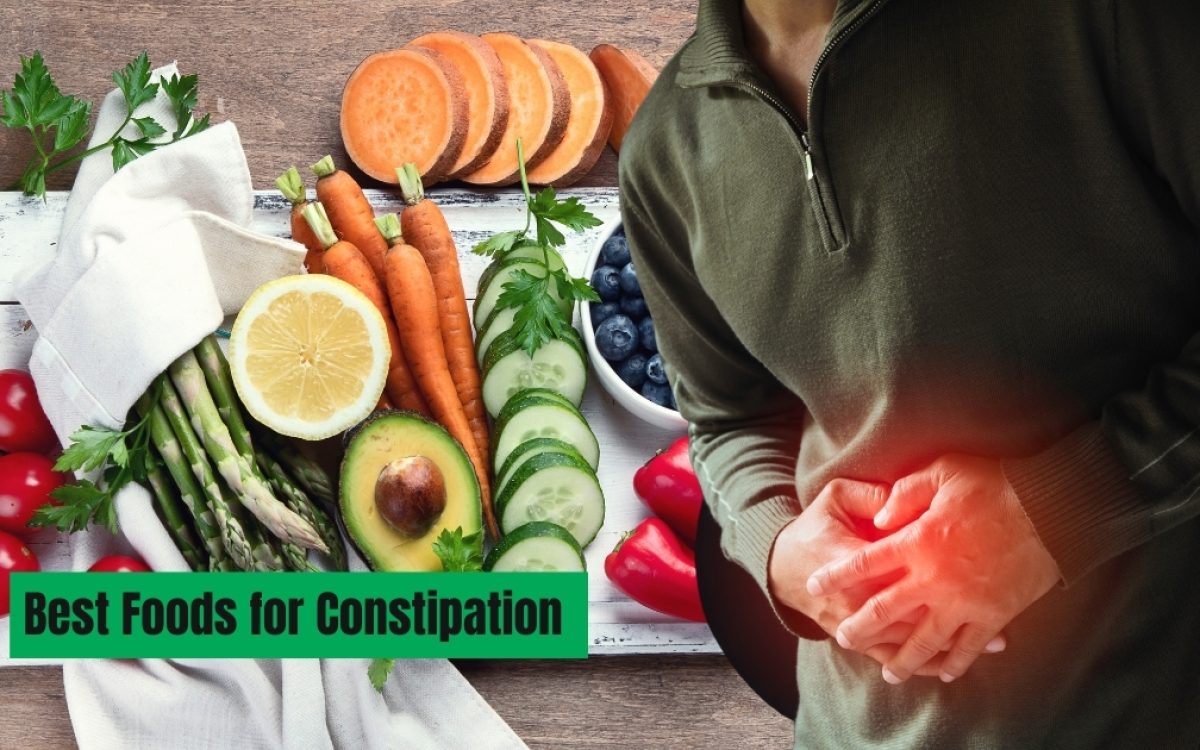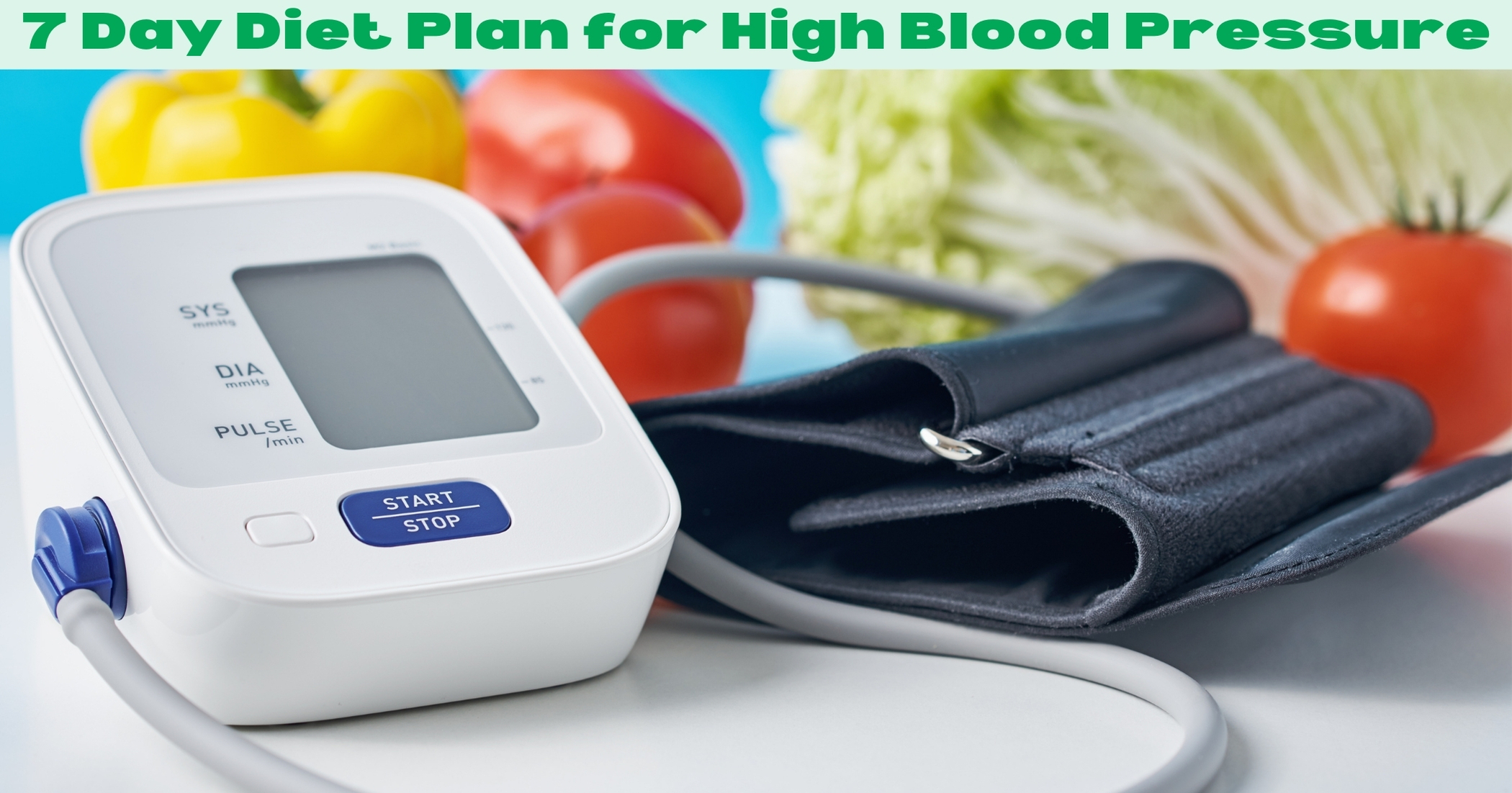Have you ever found yourself grappling with the discomfort of constipation, desperately seeking ”best foods for constipation?” If so, you’re not alone in this struggle. In this guide, we’ll embark on a journey to unlock the secrets of constipation relief, focusing on the power of dietary choices. Yes, you heard that right! The foods you eat can play a crucial role in alleviating constipation woes. So, sit back, relax, and let’s delve into the world of digestive health together.
Table of Contents
ToggleUnderstanding Constipation: A Primer
Imagine waking up to another day feeling sluggish and uncomfortable, the lingering effects of constipation weighing heavily on your mind. You’ve tried various remedies, from over-the-counter laxatives to home remedies passed down through generations, but nothing seems to provide lasting relief. Frustration mounts as you long for a solution that doesn’t involve harsh chemicals or unpleasant side effects. Sound familiar? If it does, you’re not alone. Many individuals grapple with the challenges of constipation, searching for answers that seem just out of reach.
In our quest for best foods for constipation relief, let’s turn our attention to the kitchen. That’s right – the foods we consume can have a significant impact on our digestive health. But before we delve into specific dietary recommendations, let’s first understand what constipation is and why it occurs.
Constipation occurs when bowel movements become infrequent or difficult to pass. It can be caused by a variety of factors, including dietary choices, lack of fiber, dehydration, and sedentary lifestyle. Understanding these underlying causes is crucial in formulating an effective plan for relief.
Now, let’s explore the role of food in combating constipation. Incorporating fiber-rich foods into your diet, such as fruits, vegetables, whole grains, and legumes, can help promote regularity and ease bowel movements. Additionally, staying hydrated by drinking plenty of water throughout the day can soften stools and make them easier to pass.
But it’s not just about what you eat – it’s also about how you eat. Mindful eating, regular meal times, and chewing food thoroughly can all contribute to improved digestion and relief from constipation.
In conclusion, while constipation can be a frustrating and uncomfortable experience, relief may be closer than you think. By making simple yet impactful changes to your diet and lifestyle, you can unlock the secrets of constipation relief and enjoy greater comfort and well-being.
Remember, it’s all about finding what works best for you and your body. So, let’s take a step forward on this journey toward digestive health together.
The Importance of Dietary Choices
Let’s talk business (or tofu, if that’s your jam) – your diet plays a significant role in the constipation saga. What you put on your plate can keep things moving smoothly or leave you stuck in slow motion. So, why exactly are dietary choices so darn important when it comes to kicking constipation to the curb? Well, buckle up because we’ll break it down for you.
First off, let’s talk fibre. You’ve probably heard the term before, but what exactly is it? Think of fibre as your gut’s best friend – it’s the stuff that gives your stool bulk and makes it easier to pass. You can find fibre in all goodies, like fruits, veggies, whole grains, and legumes. So, if you’re feeling backed up, loading up on fibre-rich foods can be a game-changer.

But wait, there’s more! Hydration is another crucial player in the quest for regularity. Picture this: your digestive system is like a well-oiled machine, and water is the lubricant that keeps everything running smoothly. Without enough H2O, things can get clogged up. So ensure you’re sipping on plenty of water throughout the day to keep things moving nicely.
And let’s not forget about those sneaky processed foods and sugary treats. They might taste delicious, but they’re not harming your digestive system. These foods are often low in fibre and high in refined sugars, which can throw your gut out of whack and leave you feeling bloated and uncomfortable. So next time you’re tempted to reach for that bag of chips or a candy bar, think twice and opt for a healthier choice.
This section highlights the importance of making intelligent dietary choices to keep constipation at bay. By focusing on fibre-rich foods, staying hydrated, and steering clear of processed junk, you can give your digestive system the support it needs to function smoothly. So load up on those veggies, pour yourself another glass of water, and say goodbye to constipation woes for good.
Fiber-Rich Food s: Nature’s Remedies
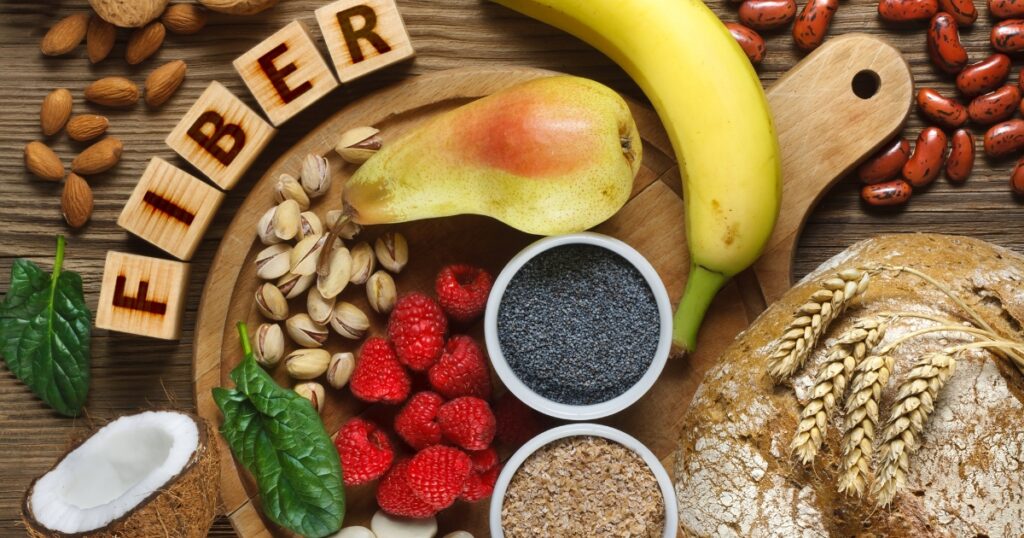
Let’s talk fibre – the unsung hero of digestive health. You see, fibre is like the janitor of your digestive system, sweeping away waste and keeping things moving smoothly. Lucky for us, Mother Nature has provided plenty of fibre-rich foods. Think crunchy apples, sweet strawberries, hearty beans, and leafy greens. These fibre-packed goodies help bulk up your stool and keep you feeling full and satisfied. So, if you’re looking to banish constipation, load up on fibre-rich foods and let nature do its thing.
Prunes and Prune Juice: A Time-Tested Solution
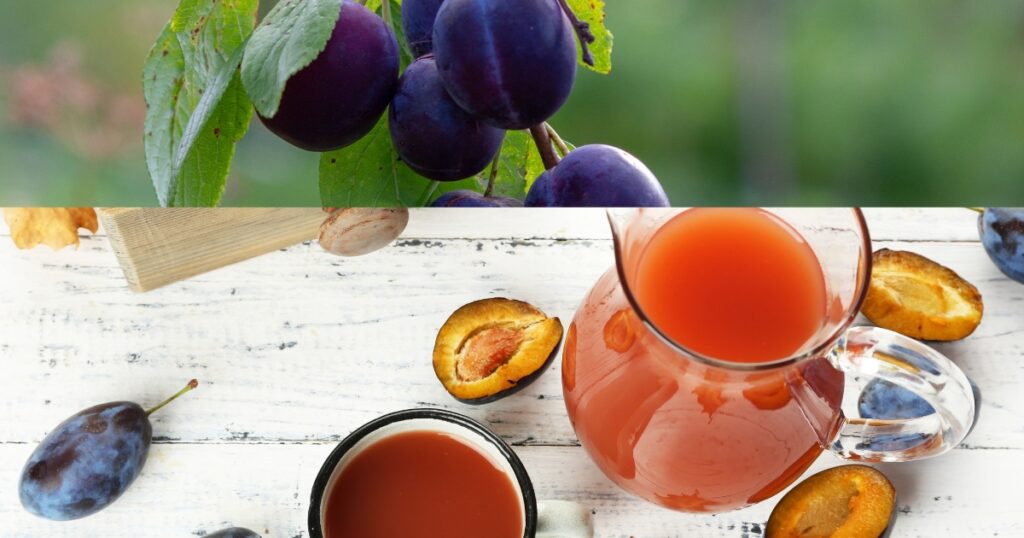
Ah, the humble prune – it may not be the sexiest fruit on the block, but when it comes to battling constipation, it’s a true champion. Prunes are packed with fibre and sorbitol, a natural sugar alcohol that is a gentle laxative. They’re chock-full of antioxidants and other goodies that promote digestive health. Adding prunes to your diet is a surefire way to get things moving, whether you prefer dried or in juice form. So go ahead, snack on a few prunes or pour yourself a glass of prune juice – your gut will thank you for it.
Whole Grains: Nourishing Your Gut
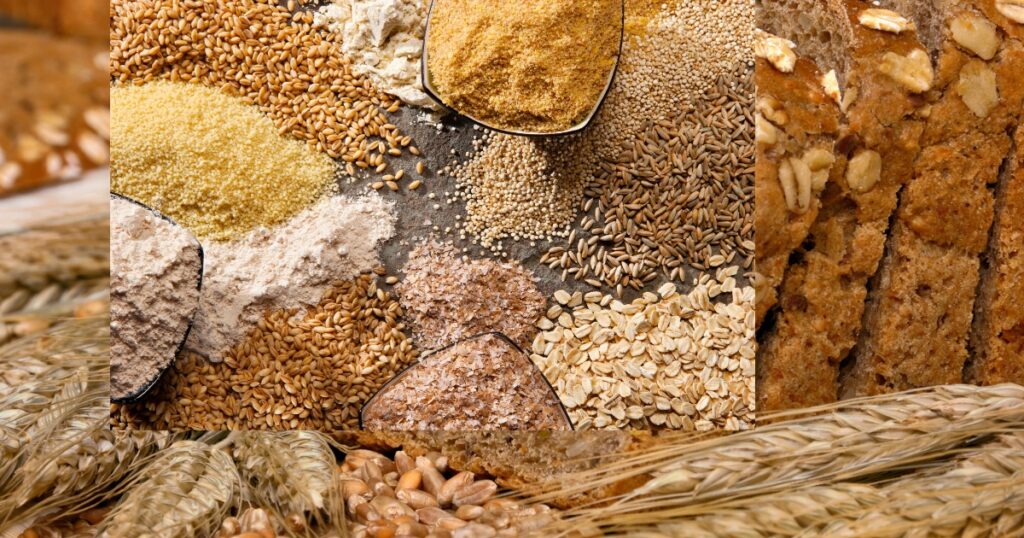
When it comes to keeping your digestive system happy, whole grains are where it’s at. Unlike their refined counterparts, whole grains are packed with fibre, vitamins, and minerals that promote gut health. From hearty oatmeal to nutty quinoa, there’s no shortage of delicious whole grains. So swap out that white bread for whole wheat, trade in your regular pasta for whole grain, and start nourishing your gut with the good stuff. Your digestive system will thank you for it.
Power of Produce: Fruits and Vegetables for Digestive Health
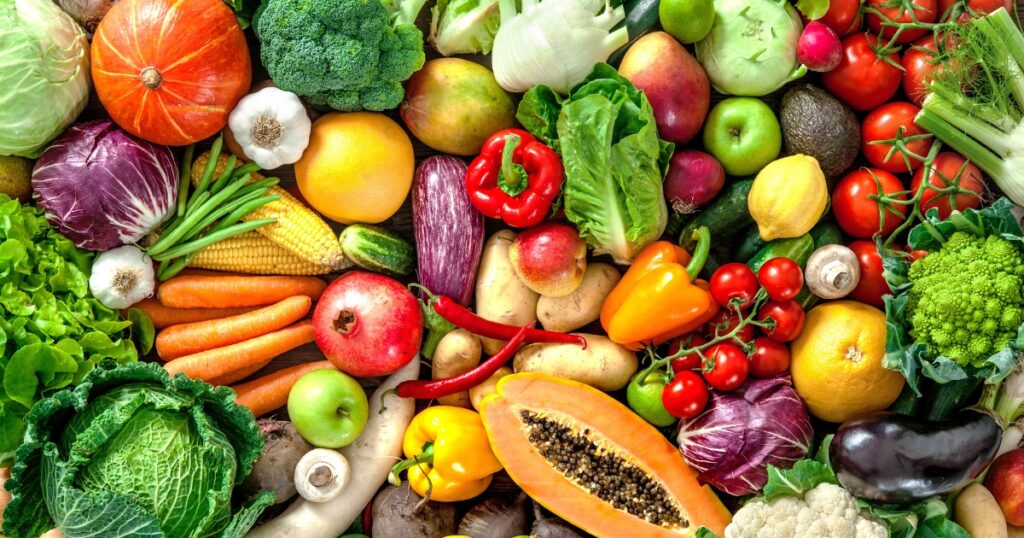
Let’s talk about the powerhouse duo, which is fruits and vegetables. These colourful gems aren’t just good for your waistline but essential for keeping your digestive system humming smoothly. Packed with fibre, vitamins, and antioxidants, fruits and veggies help bulk your stool, promote healthy digestion, and keep things moving. Whether crunching on carrots, munching on mangoes, or savouring spinach, adding more fruits and vegetables to your diet is a surefire way to give your gut the love it deserves.
Legumes and Beans: Adding Bulk to Your Diet
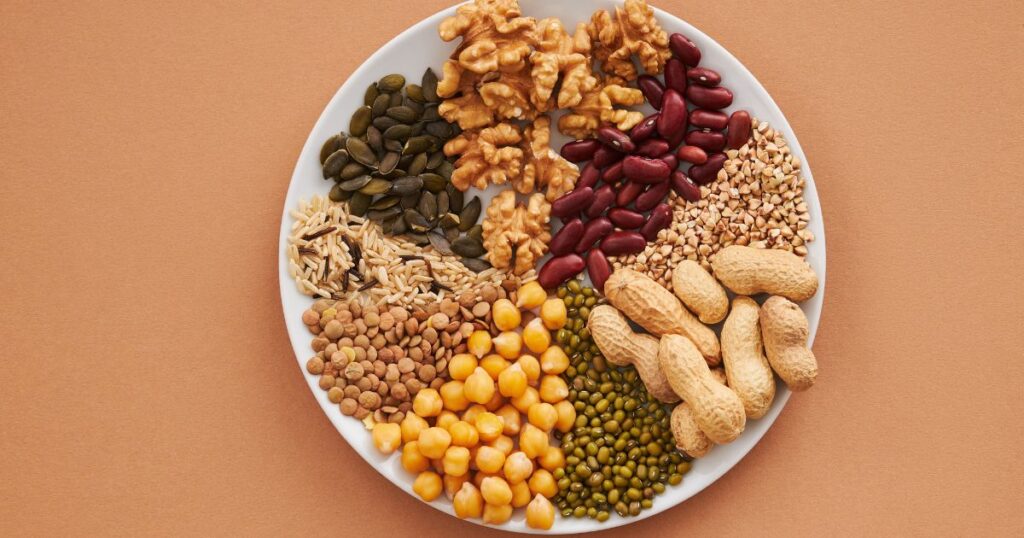
If you want to add some serious bulk to your diet (in a good way), look no further than legumes and beans. These little guys are packed with fibre and protein, making them a powerhouse combo for digestive health. Whether you’re whipping up a batch of homemade chilli, tossing some chickpeas into your salad, or snacking on edamame, legumes and beans are an easy and delicious way to keep things moving smoothly down there.
Nuts and Seeds: Tiny Powerhouses of Fiber
Don’t let their small size fool you – nuts and seeds are nutritional powerhouses for digestive health. Packed with fibre, healthy fats, and a host of vitamins and minerals, nuts and seeds help to keep your digestive system running smoothly. Whether sprinkling chia seeds on your morning yoghurt, munching on almonds for a midday snack, or tossing some pumpkin seeds into your salad, incorporating more nuts and seeds into your diet is a simple and delicious way to support your gut health.
Hydration: The Unsung Hero of Digestion

Let’s talk about the unsung hero of digestion: hydration. You see, water is like the oil that keeps the gears of your digestive system running smoothly. It helps to soften stool, prevent constipation, and flush waste out of your body. So ensure you’re sipping on plenty of water throughout the day – aim for at least eight glasses – and watch your digestive woes melt away.
Probiotics and Prebiotics: Balancing Your Gut Flora
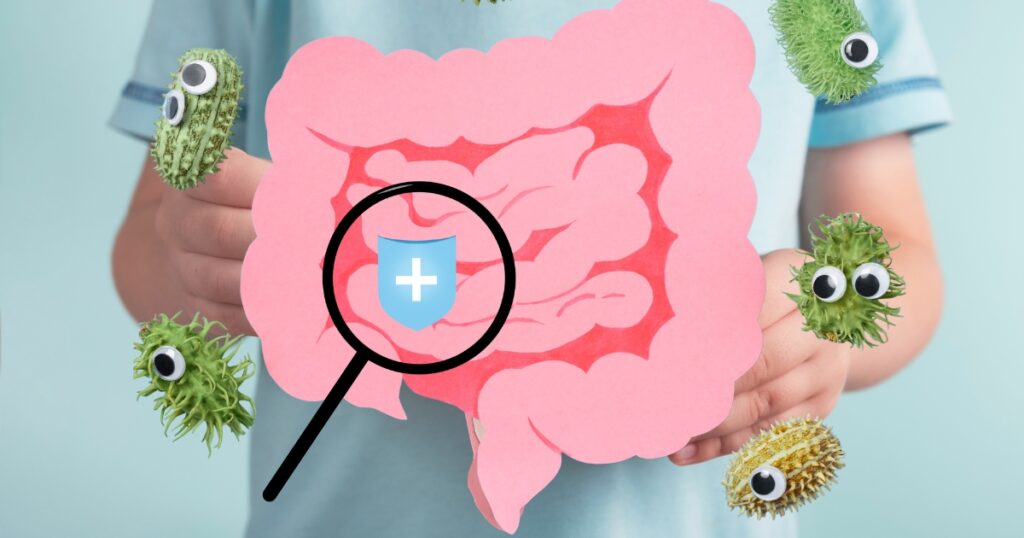
Your gut is home to trillions of bacteria, both good and bad. Maintaining the right balance of these bacteria is crucial for digestive health. That’s where probiotics and prebiotics come in. Probiotics are live bacteria that help to replenish and support the good bacteria in your gut, while prebiotics are indigestible fibres that act as food for these bacteria. Together, they work synergistically to promote a healthy gut microbiome and keep your digestive system running smoothly.
Lifestyle Changes: Enhancing Digestive Wellness

When it comes to digestive health, small lifestyle changes can make a big difference. Things like getting regular exercise, managing stress, and avoiding smoking and excessive alcohol can all help to keep your digestive system happy and healthy. So lace up those sneakers, practice deep breathing exercises, and say goodbye to unhealthy habits – your gut will thank you.
Recipes for Relief: Delicious and Nutritious Solutions
Who says relieving constipation has to be boring? You can enjoy delicious and nutritious meals that promote digestive health with suitable recipes. The endless options are fibre-rich smoothies, hearty bean soups, and probiotic-packed yoghurt bowls. So dust off your apron, fire up the stove, and get ready to whip up some culinary magic that will have your digestive system singing joyfully.
Supplements and Alternative Remedies: Exploring Your Options
While dietary changes are often the first defence against constipation, sometimes you need extra help. That’s where supplements and alternative remedies come in. Whether you’re reaching for a fibre supplement, trying out herbal remedies like senna or aloe vera, or experimenting with acupuncture or yoga, there are plenty of options to explore. Talk to your doctor before trying new supplements or treatments to ensure they’re safe and effective.
Avoiding Constipation Culprits: Foods to Limit or Avoid
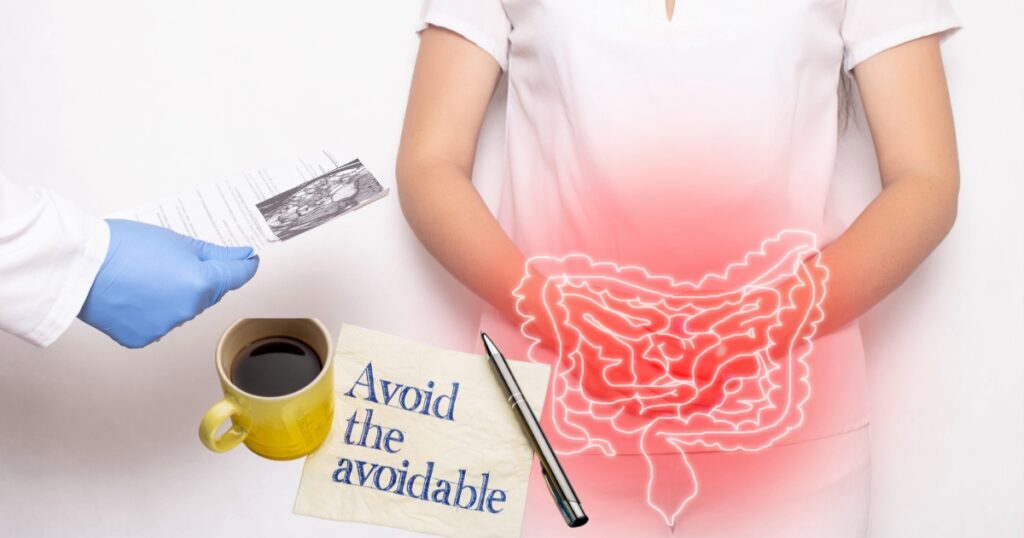
Knowing what to eat is as important as knowing what to avoid when preventing constipation. Certain foods and drinks – like processed foods, fried foods, dairy products, and caffeine – can worsen constipation symptoms and leave you feeling even more backed up. Steering clear of these culprits and opting for healthier alternatives can help keep constipation at bay and promote better digestive health.
Meal Planning for Regularity: Building a Constipation-Friendly Diet
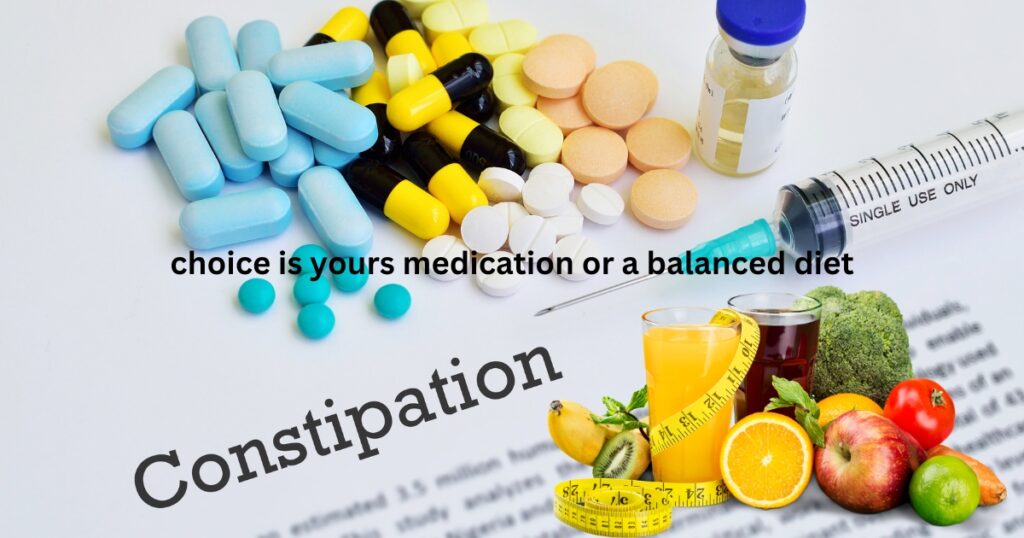
They say failing to plan is planning to fail – and that’s especially true when it comes to relieving constipation. By preparing your meals and snacks with constipation-fighting foods in mind, you can set yourself up for success and ensure you’re getting all the nutrients your body needs to stay regular. So grab a pen and paper, jot down some meal ideas, and create a constipation-friendly diet that works for you.

